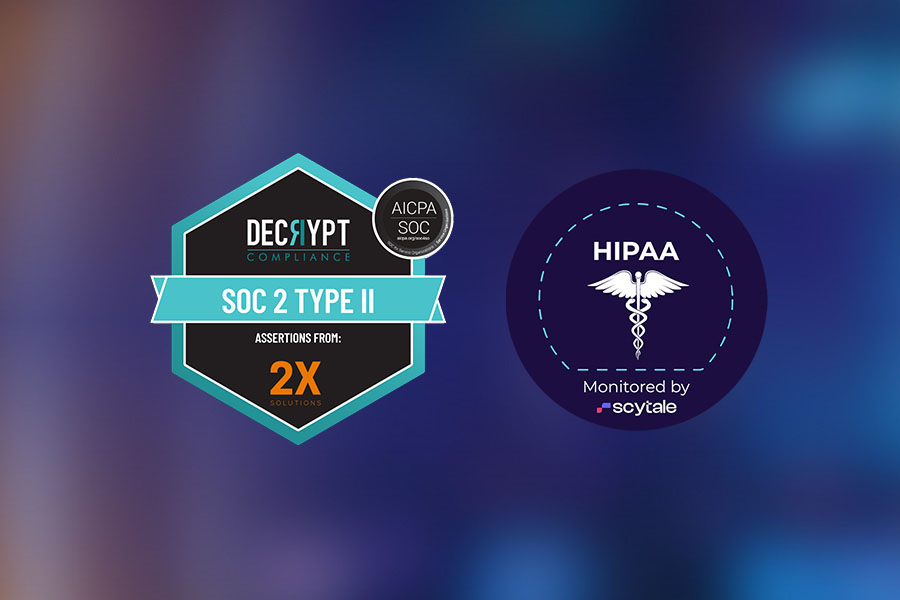Regardless of industry, customer churn is a constant hindrance to success. Obtaining customers is a resource-heavy endeavor. Losing them in the blink of an eye feels like flushing those resources down the drain.
You need tools to keep your customers engaged and reduce attrition. Conversational AI is a tool that delivers proven results at a reasonable cost.
Compared to other automated customer interaction tools that feel robotic, conversational AI enables realistic, personalized interactions with your customers. Such interactions foster stronger customer loyalty and naturally reduce churn. Learn more about how this tool works and what it can do for your business retention strategies.
Introduction to Conversational AI and Customer Loyalty
Conversational AI is a technology that attempts to mimic a natural conversation between two humans. Ideally, even though the customer may know that an AI virtual agent is on the other end, the conversation feels normal.
When a customer must constantly repeat information to a chatbot or press multiple buttons in a voice response system, it’s frustrating. Customers may feel like the business isn’t prioritizing them.
When the interaction feels more natural and streamlined with conversational AI, though, customer loyalty naturally increases. Customers feel like your business is investing time in helping them, rather than leaving them in a voicemail menu with no answers.
Customers who have satisfactory interactions with your business — even if they never speak to a human — will remain more loyal. Positive interactions reduce customer churn because customers don’t feel the need to look at your competitors. They’re getting what they need from you.
Understanding Conversational AI: Technologies and Capabilities
Conversational AI is nothing like basic chatbots that you’ve seen or used in the past. Chatbots must follow certain pre-set rules and message responses, which may not fit the intent of the customer.
Conversational AI recognizes what the customer is saying, deciphering the intent behind the words. This gives it a better chance of sourcing an answer that makes sense and is helpful. Conversational AI also can make automatic improvements upon its past responses rather than needing a human to reprogram it.
Some of the key technologies behind conversational AI include:
- NLP: Natural Language Processing allows the AI system to interpret what a human is saying and respond in a natural way. It can understand the principles of language.
- ML: Machine learning uses algorithms to allow conversational AI to make automatic changes in how it responds to humans based on feedback from past responses.
- DL: Deep learning is a subset of machine learning that helps conversational AI recognize complex language patterns so it can decipher what a person is asking.
Building Personalized Customer Experiences

Whether you want to deploy conversational AI in the insurance industry, retail, or somewhere else, it needs to give the customer a personalized experience. Personalization helps with customer retention.
Conversational AI personalizes interactions by recalling previous interactions. It can study past customer orders or previous calls for service. With that information in hand, conversational AI can save the customer time versus having to repeat background information each time.
Many companies are using conversational AI successfully for personalization, including:
- Amazon: Amazon’s huge customer base generates a massive amount of data that its conversational AI system can use. The system combines this data with personalized order information and past interactions with a particular customer to create highly personalized recommended product lists.
- Coca-Cola: Coca-Cola deploys conversational AI in vending machines that offer multiple flavor options in a single unit. These machines can interpret customer preferences for favorite flavors or dietary restrictions, as well as overall market trends, to make personalized suggestions on new beverages to try.
- Nike: Nike uses conversational AI to measure its interactions with thousands of customers. It then uses that information to make suggestions for product designs to customers. It emphasizes designs that are driving overall customer loyalty but that feel personalized to each individual customer.
Enhancing Customer Support and Service
You might think deploying conversational AI in call centers is a perfect use case, and you’d be correct. Customers primarily interact with your business during calls to your service or support team. Your conversational AI system must deliver a satisfactory experience during this interaction to maintain brand loyalty.
Conversational AI’s ability to interpret the exact meaning of what the customer is saying plays a key role in better customer service results.
This differs from an interactive voice response (IVR) system that asks customers to press buttons from a menu of choices. Customers often become frustrated if the pre-generated menu options don’t really solve the problem. If they push the wrong button, they may end up going down a road of menu choices that leaves them wasting time. They may feel more frustrated than when they started the call.
Rather than generating friction in the interaction with your company, conversational AI can help the customer feel good about it. This gives you a better chance of keeping the customer loyal to your business. The customer doesn’t have any motivation to look at competitors and what they are offering.
Proactive Engagement and Customer Retention
One of conversational AI’s greatest strengths is giving a business proactive steps to take for customer interactions and retention.
- Combating Churn: Rather than waiting for churn to happen, conversational AI studies data to identify experiences past customers had that led to churn. It then can help you avoid repeating those experiences with current customers.
- Customer Offers: Customers appreciate receiving offers for discounts or free products when those offers match their tastes and preferences. Conversational AI can interpret past customer interactions and orders to create personalized offers that lead to better customer loyalty.
- Anticipate Problems: When one customer’s issues start to mimic issues that past customers had, conversational AI can try to fix those issues immediately. Perhaps AI handles the problem before the customer even realizes it’s occurring.
Feedback Collection and Sentiment Analysis

Conversational AI’s ability to interpret customer language gives it the ability to measure feedback accurately. This is especially useful in sentiment analysis, which involves identifying subjective information from opinions that customers have.
Whether you want to understand customer sentiment through product reviews left at retailer websites or through social media interactions, conversational AI can help. It can measure customer opinions from direct interactions, too, such as customer service phone calls or live chat sessions.
Your conversational AI system measures feedback as customers leave it in real-time. The system interprets the meaning behind the feedback, understanding whether it’s positive, negative, or neutral.
If customers are using social media to register complaints about a service issue, conversational AI alerts you to the problem immediately. If the customer responses are delivering positive messages about a new product or service, this is key information you can use, too.
Being able to measure feedback in real-time can help your business spot trends quickly that could lead to churn. You then can take immediate action to try to fix the problems before customers become frustrated and start looking at your competitors.
Future Trends and Challenges in Conversational AI for Customer Loyalty
As with any new technology like conversational AI, ethical considerations are important to understand. Without careful implementation of these technologies, you could end up with unintended consequences, including:
- Bias in the interpretation of language that leads to poor interpretations or outright discrimination.
- Unethical use of conversational AI that infringes on the rights to privacy for customers.
- Weak security measures that fail to protect the customer data that conversational AI uses.
If customers are unsure whether you’re using conversational AI and other new technologies ethically, they may turn away from your brand.
Having a trusted, experienced partner working with you in deploying your conversational AI systems can help with the ethical challenges. At 2X Solutions, we understand the need for transparency behind the deployment of any technology, let alone one as powerful as conversational AI. We help you set up oversight tools that ensure the system is performing to your expectations and as promised for your customers.
2X Solutions Has the Tools and Expertise You Can Trust
Regardless of industry, businesses need to develop and deploy strategies for maintaining customer loyalty. Tools that help with these strategies continue to evolve. AI promises to be one that changes the industry significantly.
If you’re struggling to understand AI’s true potential — let alone figure out how to deploy it for your business — 2X Solutions has the expertise you need. Some of the services we provide include:
- Showing you how AI can help your specific business.
- Explaining the benefits of AI, both in customer retention and in cost savings.
- Helping you implement conversational AI in a way that gives you the greatest benefits and intended results.
- Meshing your existing systems with the AI tools.
- Watching the industry for improvements in AI, looking for new features that would fit your particular business perfectly.
Smoother customer interactions lead to increased customer satisfaction. Let 2X Solutions show you how to implement conversational AI to boost your customers’ experiences. To learn more about how you can deploy these tools, reach out to us today at (323) 214-3889.





